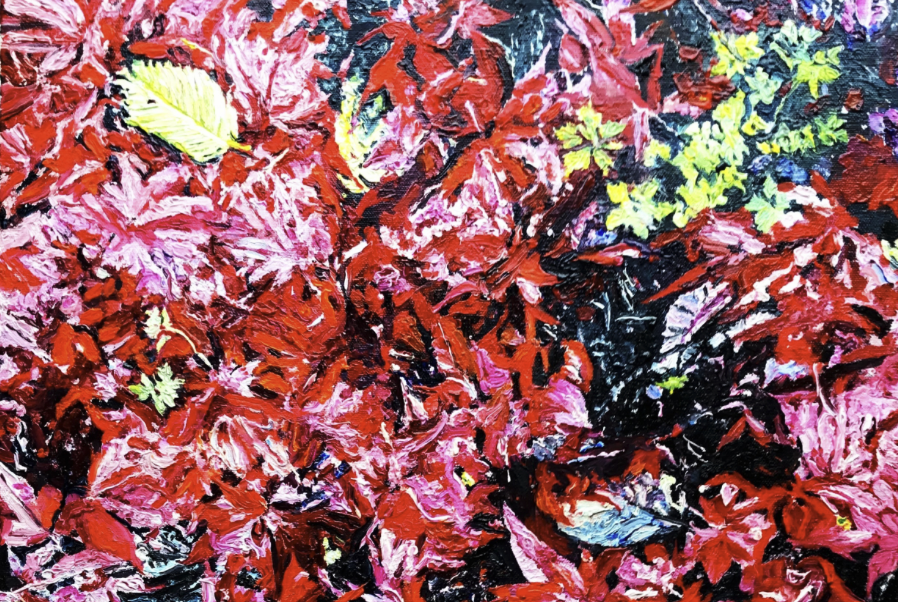The Truth of a Turnip
Is the truth of gift, and the relationships it nurtures and spawns, which makes life worth living?

Brian Alderson once wrote a children’s book called ‘The Tale of the Turnip’ (London: Walker, 1999) and like many children’s stories it offers to adults, as well as children, another way of seeing the world.
“Once, a good time ago, there was an old farmer. He lived in a ramshackle cottage, with a few chickens and such like, and he looked after a few fields. But across the way there was an arrogant old squire, and he lived in a fancy great house, with stables and gardens, and fields and meadows, and chickens and pigs, and cows and horses, and who knows what else.
Now one day the old farmer went out into his fields and planted a lot of turnips and some of them grew and some of them didn’t. But right bang in the middle of one field there was a turnip that grew... and grew... and grew.... and grew... and grew.
“Hen’s teeth!” said the old farmer to his wife. “This is a right champion turnip. We must take it to the king.” So they got a block and tackle and they heaved it out of the ground and on to a wagon... and they took it to the king.
“Stone the crows!” said the king. “That’s the most champion turnip I ever did see.” He gave the old farmer a cartload of gold and the old farmer went home happy.
When the squire heard about this he was furious. “What! - What! - What!” he shouted. “Giving that old codger a cart-load of gold for a miserable turnip! Why! I’ve got a stable full of horses out there, and any one of ‘em’s worth a thousand turnips. I’ll give the king one of those.” So he fetched out his best horse, put it in the wagon so as not to wear it out, and he took it to give to the king.
“By gum!” said the king. “That’s the most poshed-up horse I ever did see. Why, not even the crown jewels are a fit reward for a horse like that. What’ll I give you? I know... you can have... my champion turnip!””
The old farmer and the squire both offered something of value to the king. And the king reciprocated - one getting sacks of gold and the other a turnip. The difference between the old farmer and the squire was their attitude. The farmer offered, with seemingly little thought of any reward, because the turnip felt like a gift and he’d caught its bug, generosity. Note that the farmer never refers to the turnip as 'his' turnip. The squire offered, with every thought being of reward, because he was envious of the farmer and he’d caught that bug, greed.
Now it is not too difficult to imagine another farmer with a huge champion turnip. This turnip is allegedly the result of the farmer’s skills and good fortune. He considers charging people to see it. He also considers contacting the magazines and ‘papers and selling his story. He also considers chopping it up and selling the pieces as souvenirs or for culinary purposes.
In the event he does all three, and receives the expected monetary rewards. He is the sort of person our society deems to be wise and appoints to political office, boards of governance, and such like. The old farmer who gave away the turnip would be written off as a naïve antiquated monarchist.
Alas, we follow the way of the squire rather than the way of the old farmer!
Possessions can have a way of fooling us. They can say: “You deserve us.” “You have worked hard for us.” “You were in the right place at the right time.” “Your positive outlook has rewarded you.” And there is a drop of truth in these sayings. Just as there is a drop of truth in the boss, manager, worker, or even minister who says, “I hold this position because I am smart and because I am able. And so I am here because I deserve to be here.”
But these drops are dwarfed by a whole ocean of truth. The truth of gift.
Gift is the principle upon which human experience is based. Life itself is the result of others’ gifts of procreation, pregnancy, and giving birth. We are sustained by the good things of nature and by the labour, generosity, and society of other humans. We have been brought to maturity through the self-giving of our life teachers. We are sustained in our living by gifts of love, forgiveness, and pleasure. All these gifts are largely unquantifiable and incalculable. You can’t pay anyone for them. They don’t show up in annual reports, government reports, or accounts. They are in a sense invisible.
And yet it is the truth of gift, and the relationships it nurtures and spawns, which makes life worth living.




